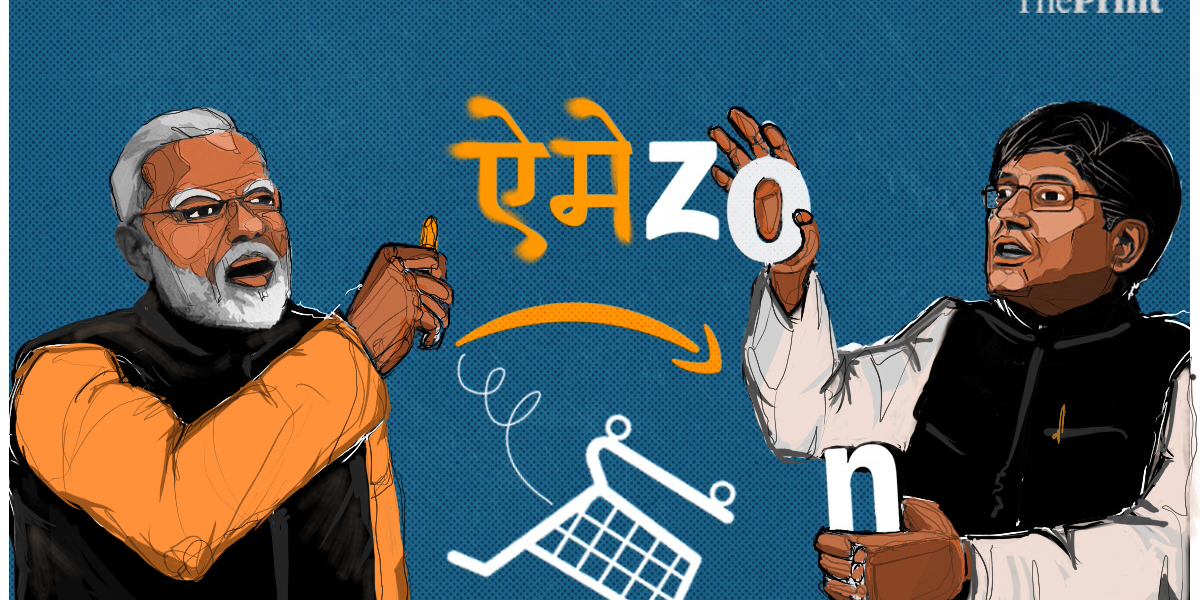
In modern times, right-wing politics is associated with laissez-faire capitalism or support for free market, deregulation and privatisation. Left-wing economic model ranges from socialism to communism, depending on the extremity of economic perspective. The perception of this divide between right-wing economics and left-wing economics is delusional as is evident through the blurring of lines between the ideological principles dictating the present-day economic agenda.
This deluded perception has been more entrenched in the Indian psyche due to the history of Nehruvian Socialism and Indira Gandhi’s Populism. Jawaharlal Nehru’s economic policy was inspired by the Russian revolution, with Russia being a nation whose income seemed to be fairly distributed among its masses. Nehru saw capitalism and imperialism as inter-related forces which must be resisted fiercely. However, Nehru’s protectionist economic policy focusing on complete state control of the economy and centralised planning had disastrous economic consequences for the nation. Indira Gandhi’s economic policies of increasing regulations on the private sector and nationalisation of banks was a continuity of the connection between the Congress Party and Socialism. Socialist India hardly witnessed adequate economic growth until it became Liberalised India in 1991. The neoliberal economic reform of 1991 ushered a new wave of development in India.
With the Indian National Congress as the ruling party of the nation for most of Independent India’s history, the socialist leanings of Congress came under increasing criticism. However, there was no major political force that Congress had to reckon with at the national level until BJP’s electoral victory in 1998. Currently, in 2020, the equation has reversed and BJP has no political opponent at the national level to challenge it substantially. With elections being about personalities, the charisma and mass appeal of Narendra Modi has none other at its par.
However, today, we face an unprecedented challenge: The COVID-19 Pandemic. COVID-19 pandemic has led to a substantial decline in international trade, private sector employment, industrial manufacturing, survival and growth of businesses and other pillars of a capitalist economy. Francis Fukuyama declared the end of history back in 1992 claiming that the Western liberal democracy would be the final form of human government. But today in the pandemic world, we find both democracy and economic liberalism in danger. We are witnessing the rise of authoritarianism and the fall of economic freedom across the world. A question has been raised on whether the collapse of capitalism will lead to subsequent disintegration of right-wing governments. I say No.
The Marxist theory says that economics is the foundation of everything. Contrary to Marxist analysis, political reality might determine the economic ramifications. The absence of an equally powerful and credible political alternative to the Modi led NDA Government would mean the continuation of the BJP party as the supreme ruling party of India. Here, the traditional association of right-wing politics with capitalism is not of considerable importance. Pure capitalism might not survive the pandemic, but the right-wing government will survive in the post-pandemic world if there is no parallel political power to compete against it. In this case, economics is just an arm of the political party and political parties use that arm according to their self-interest. Right-wing political parties will modify capitalism and co-opt socialism into the free-market economy as is already evident by the inward-looking nationalism of various right-wing leaders across the world. No matter what the economic model is called, the post-pandemic world might see transformed capitalism which has appropriated socialist principles in its agenda. Narendra Modi’s emphasis on campaigns such as ‘Make in India’ and ‘Atmanirbhar Bharat’ and his recent appeal to the citizens to go ‘vocal for local’ is evidence of the fact that there is no singular and monolithic economic agenda that can be associated with right-wing politics.
Today, right-wing governments cleverly sideline economics from public debate and analysis. Paid media manufacture issues of importance and shift the public’s attention from the economic failures of the ruling right-wing. As is well known, it is the age of mass distraction. Currently, right-wing governments across the world are encashing upon identity politics. Identity crisis and not an economic crisis is becoming the electoral agenda. By identity crisis, I mean a communitarian and nationalist perspective towards identity which has divided humankind as is popularly represented through magazine headlines such as ‘Divided States of America’ and ‘India’s Divider-in-chief’. When I say politics determines economics and not the other way round, I refer to the electoral strategy of right-wing governments after reneging on their economic promises for their nation-states. Immigration, racism, casteism, religion and other identities become the electoral agenda instead of economic growth.
Thus, the political capitalisation of identities such as race and religion indicate that as long as a society is divided across various communitarian lines, right-wing governments will continue to faithfully contradict Marx by keeping political interest first, putting economic welfare to the backburner.
Photo Source:The Print
About The Author
Manjima Misra has studied English Literature at University of Delhi. She is the author of two books: ‘Unapologetically Mad’ and ‘Indian Feminine Fury’.



You have made some good points there. I looked on the internet to learn more about the issue and found most individuals
will go along with your views on this site.
Very good info. Lucky me I found your blog by accident (stumbleupon).
I have book marked it for later!
I savor, cause I found exactly what I used to be having a look for.
You’ve ended my 4 day long hunt! God Bless you man. Have a nice
day. Bye
you’ve a fantastic blog here! would you prefer to make some invite posts on my blog?